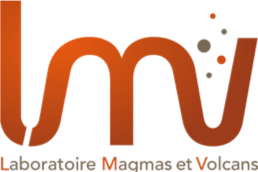The Laboratoire Magmas and volcanoes and the Institut Camille Jordan (Laboratory of Mathematics) have an open post-doctorate opportunity funded by the french research agency ANR grant The position will concern the mathematical aspects of a novel method for jointly modelling displacements and gravity variations at volcanoes. The duration of the post-doctorate is 44 months. Scientific…
Cette conférence, qui regroupait personnalités politiques du gouvernement de République Démocratique du Congo, des personnalités scientifiques et des représentants de la société civile, s’est tenue du 19 au 21 mars. Cette conférence faisait suite à l’éruption du Nyiragongo de mai 2021. Son but était d’améliorer la capacité de l’Observatoire Volcanologique de Goma (OVG) à surveiller…
The volcanoes we study Understanding volcanism requires the acquisition of field data: visible and thermal imagery, geophysical campaigns, gas, rock and ash sampling for petrological and geochemical analyses, mapping of deposits and destruction, etc. Our targets depend on the current activity, research themes and our collaborations with French laboratories and observatories, as well as partner…
Engineer position: re-writing of an interface dedicated to the inversion of surface deformation In the framework of the European project EUROVOLC (https://cordis.europa.eu/project/rcn/213380_fr.html), the Observatoire de Physique du Globe de Clermont and the Laboratoire Magmas et Volcans (https://lmv.uca.fr) are looking for an engineer to re-write an interface dedicated to the inversion of surface displacement at…
CNRS Research director Co-head of the Volcanology team of Laboratoire Magmas and Volcanoes (LMV) Volcanology team Tel: 33 (0)4.73.34.67.87 Email : valerie.cayol@uca.fr Two children See page in French
Directrice de recherches, CNRS Equipe volcanologie Bureau 1.44, Téléphone: 04.73.34.67.87, mail : valerie.cayol@uca.fr Responsable de l’équipe volcanologie, HDR 2 enfants See page in English
Have also a look at the numerical laboratory The volcanology team has numerical simulation tools, some of which were developed in the laboratory: the VolcFlow code for modelling volcanic flows, deformation models and magma transfers using boundary elements and fictitious domains (DefVolc). This activity is partly based on the computing resources of the UCA’s mesocentre…
A voir aussi le laboratoire de traitement numérique L’équipe de volcanologie dispose d’outils de simulation numérique, dont certains ont été développés au laboratoire : code VolcFlow pour la modélisation d’écoulements volcaniques, modèles de déformation et transferts de magmas par éléments frontières et domaines fictifs (DefVolc). Cette activité s’appuie en partie sur les moyens de calculs du…
The LMV has a space of 100 m² + storage + control room reserved for experiments on volcanic flows (pyroclastic flows, debris avalanches and resulting tsunamis) and on magma intrusions.
Have also a look on numerical laboratory
- 1
- 2



